
Our final destiny as sons and daughters of God is bound up with that of the angels. Our world is full of their presence and activity. That is why we ought to know foundational truths about them.
Anything that we know about angels outside of Sacred Scripture is taken from the Church Fathers and Doctors (some of whom were privileged to interact with angels) as well as from the lives of the saints.
Here are twenty-five facts you may not know about God’s holy angels.
1. Angels aren’t male or female.
They are purely spiritual beings. Since they do not have material bodies, they are neither male nor female. However: since the dawn of time, angels have chosen to present themselves in masculine form, likely in honor of God, who has revealed Himself as Father, and God the Son, who became man for our sake. Opus Sanctorum Angelorum reminds us that “Even when they are not explicitly called men, [angels] appear as magnificent, intimidating, and powerful persons—qualities that we associate normally with masculinity.”
Therefore, out of respect, we refer to all angels as “he.”
2. Angels have an intellect and a will, just like us.
Unlike us, angels have made their permanent choice to serve God and—now that they see God face to face—can never sin.
3. God created the vast number and hierarchy of angels in a single instant.
Angels weren’t born. They were made.
4. The angels are ordered into nine “choirs” and are ranked according to their natural intelligence, which vastly exceeds human intelligence.
There is a real angelic hierarchy. Some angels have greater knowledge than others; each choir of angels has unique roles.
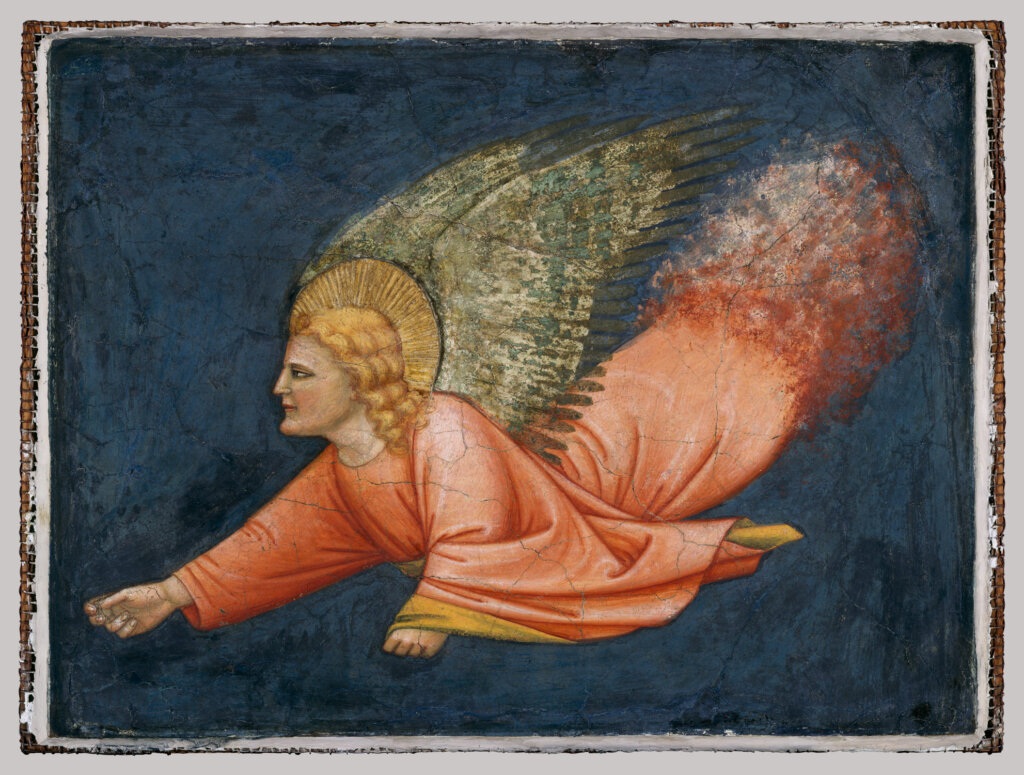
5. The angel who was originally created with the highest natural intelligence is Lucifer (Satan).
Lucifer was created good and is believed to have been in the first set of angelic choirs—the choir of Cherubim. He then chose to reject God. “Non serviam!” (“I will not serve!”) is his cry of rebellion.
6. Each individual angel has its own unique essence and is therefore a distinct species, as different from one another as trees, cows, and bees.
No two angels are the same. Their uniqueness is another reflection of the creativity and glory of God.
7. Angels have personalities that differ from one another, just as humans do.
Angels are persons. Each has a unique personality.
8. Angels are infused with a perfect knowledge of all created things, including human nature.
We are not mysteries to the angels. They know far more about us than we do ourselves!
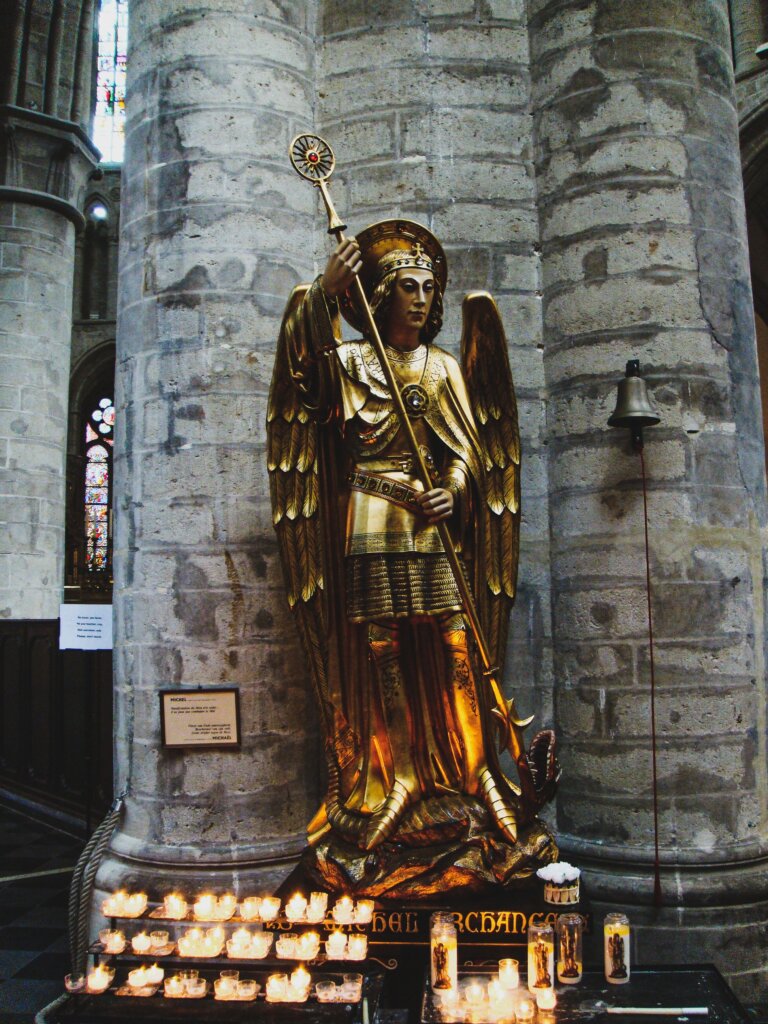
9. Angels cannot predict the future.
Angels do not know particular events that will occur in history, unless God wills that knowledge for a particular angel.
10. Angels do not know what graces God will give to certain humans; they can only infer it by observing the effects.
They are excellent observers, by the way.
11. Each angel was created for a specific task or mission.
They received instantaneous knowledge of this mission at the moment of their creation.
12. At the moment of their creation angels freely chose whether to accept or reject their mission, a choice forever locked into their will without remorse.
The fact that the angels were given one opportunity to make a choice with everlasting consequences may seem strangely unjust to us. But this is a misplaced compassion, arising from misunderstanding.
Our own human experience of thinking—with our mental processing, struggle to collect necessary information, uncertainty of consequence, and regret for negative results—is a foreign experience to the angels. Angels do not struggle to reason through a situation. “The human intellectual process is one of trial and error,” writes Fr. Horgan in his book His Angels at Our Side. “The angels don’t have to go through this process. With them, there are no trials because there are no errors…”
When Satan and his companions made their choice, for example, they were not suffering from lack of understanding, bad education, interior wounds inflicted by others, or an intellect darkened by human sin. They were created in perfection, lacking nothing. They were gifted with perfect knowledge and understanding and “knew better”—and made an evil decision anyway. Fallen angels have no desire to repent of what they have done.
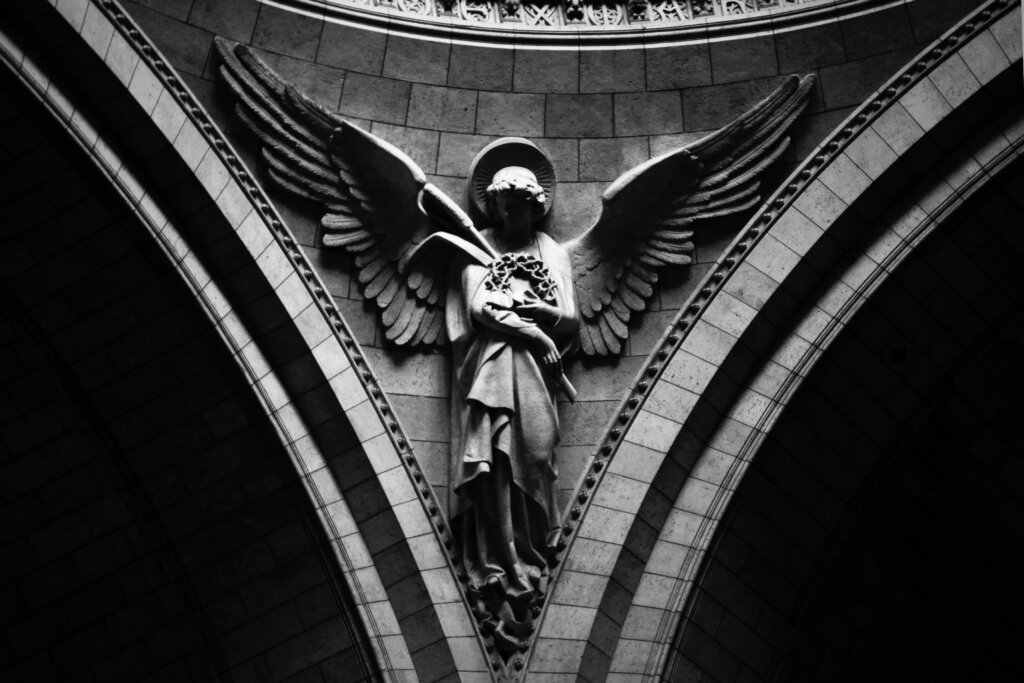
13. Each human being from the moment of their conception has a Guardian Angel assigned to them by God to lead them to salvation.
Furthermore, your guardian angel freely chose to accept you into their charge.
14. Human beings do not become angels when they die.
Instead, the saints in heaven will take the positions of the fallen angels who forfeited their place in heaven.
15. Angels communicate with one another by passing concepts from mind to mind.
The higher-intelligenced angels can share their knowledge with angels from the lower choirs.
16. Angels don’t have emotions in the same way that we do.
However, they do experience intense movements in their will that are similar to human emotions.
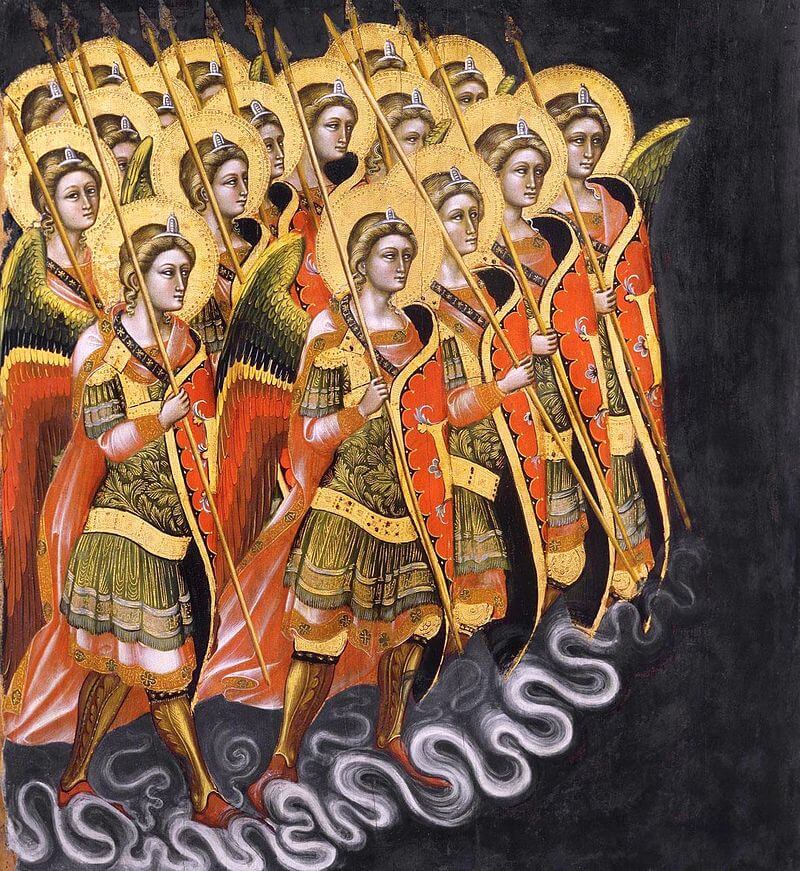
17. Angels are far more active in the life of humans than we realize.
So are demons—which is why we need to stay close to the Sacraments, maintain a consistent prayer life, and foster devotion to our guardian angels.
18. God determines when and how angels can communicate with humans.
The angels rejoice to obey Him.
19. Good angels help us to act in accord with our created nature as rational human beings.
Fallen angels do the opposite. They want us to act against our nature as rational human beings. They love irrationality.
20. Angels don’t move from location to location.
Angels do not move as we “move” as we do, since they are not material beings with material boundaries and limitations. Rather than physically running from place to place, as we must, they are present wherever their will is acting. Their presence, then, can be instantaneous.
21. Angels can prompt and guide the thoughts of humans.
However, they cannot violate our free will.
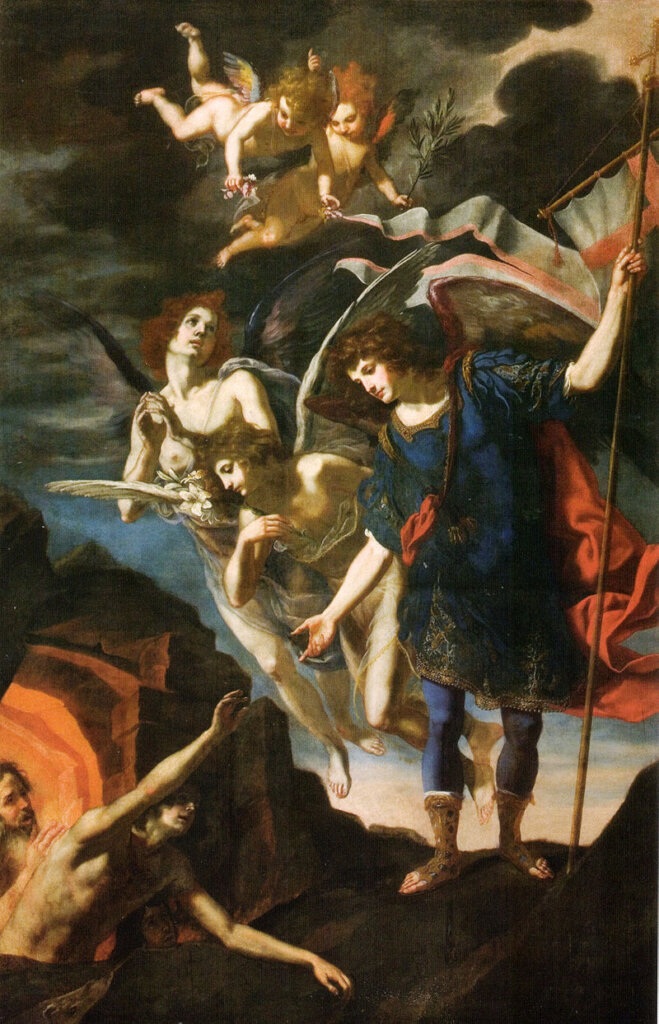
22. Angels can take information from your memory and bring an image into your mind in order to influence you.
Remember that they would only do this in accordance with God’s will. He would have a particular reason for allowing this—and it’s not going to happen every day.
23. Good angels bring to mind imagery that helps us do the right thing according to God’s will.
Fallen angels do the opposite. They try to bring images to our minds that dissuade us from God’s will.
24. The degree and kind of temptation from fallen angels is determined by God according to what is necessary for our salvation.
And as the Bible tells us, “God is faithful, and he will not let you be tempted beyond your strength, but with the temptation will also provide the way of escape, that you may be able to endure it” (1 Corinthians 10:13).
25. Angels don’t know what is happening in your intellect and will, but they can surmise it by watching our reactions, behavior, etc.
St. Thomas and St. Augustine tell us that angels can “sometimes with the greatest faculty learn man’s dispositions, not only when expressed by speech, but even when conceived in thought, when the soul expresses them by certain signs in the body.”

Conclusion
Scripture tells us that we are surrounded by a great cloud of witnesses (Heb. 12:1) and suggests that we may be unaware of how angels are interacting with us at times (Heb. 13:2). Knowing these few facts about the angels and how they work can help us be more aware of their influence over our lives.
Although we will never fully comprehend angels in this life, the teaching provided by the Church, Sacred Scripture, and the encounters of the saints has given us much to contemplate.
//The Catholic Company//
